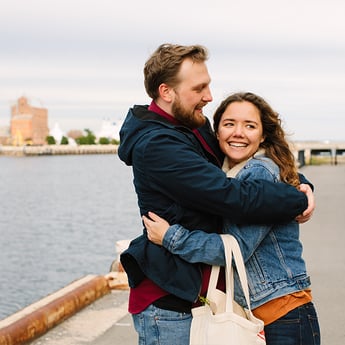Written by

Financing your first home
We understand that financing your first property might be confusing, which is why we’ve put together the ultimate guide to help! Summarising the government support available across Australia, this guide will break down everything you need to know about financing your first home.


Owning your own home is one of the great Australian dreams—and for good reason. It can provide long-term financial security and is also incredibly rewarding on a personal level. There’s nothing quite like the peace of mind that comes from knowing you’re no longer subject to a landlord’s rent increases or the possibility of being forced to move. But like any big life step, buying a home can feel daunting. To make it easier, here are some tips for first-time home buyers in Victoria.
Tip 1: Be realistic about your budget
Melbourne and greater Victoria offers a diverse range of property options, whether you’re considering city living or a quieter regional lifestyle. Start by getting a clear understanding of what you can afford. A mortgage broker or financial adviser can help you calculate your budget, factoring in one-time costs like stamp duty and ongoing expenses like council rates. They can also explain the grants or incentives you may qualify for, such as the First Home Owner Grant or stamp duty reductions. Getting informed upfront is key to a smoother process.
Tip 2: Research potential suburbs
Once you’ve determined your price range, research the areas you’re interested in. Look at how convenient the location is for commuting, access to public transport, and proximity to important amenities like schools, shops, and healthcare services. If you enjoy the outdoors, check for nearby parks or beaches. If eating out and shopping are important, consider how close you are to major activity centres. Don’t forget to think long-term: is the area likely to grow in value? Are there any upcoming developments or infrastructure improvements, like new train lines or schools, that could boost its desirability?
Tip 3: Improve your financial health
While you’re saving for a deposit, use this time to strengthen your financial profile. Focus on improving your credit score by paying bills on time and reducing debt. Try to pay off any outstanding credit cards and avoid buy-now-pay-later services. Banks want to see that you can manage your money responsibly, so start building a solid savings record.
It’s also a good idea to track your spending closely. Small changes—like cutting back on non-essential services or redirecting savings to a high-interest account—can make a big difference over time, helping you to grow your deposit and show lenders that you’re financially prepared.
Tip 4: Secure mortgage pre-approval
Once you’ve saved a deposit, typically between 5% and 20% of the property value, you’re ready to apply for mortgage pre-approval. If you’re getting some help from family, you’re in good company—many first home buyers rely on financial assistance from parents.
Pre-approval gives you a clearer picture of your buying power and helps focus your property search. It also makes you a more competitive buyer and is sometimes required when signing contracts for new developments.
Tip 5: Account for extra costs
When preparing to buy a home, don’t forget to budget for additional costs, such as Stamp Duty, legal fees, and conveyancing expenses. Your mortgage broker can walk you through the fees specific to your situation and help you understand how much you should set aside for these.
Tip 6: Explore government assistance
Victoria offers various grants and programs to support first home buyers. The First Home Owner Grant, for instance, provides $10,000 for newly built homes. You might also qualify for no or reduced stamp duty, visit the State Revenue Office website for more information on what you might qualify for.
Other programs, like the First Home Guarantee Scheme, can help you buy with as little as a 5% deposit.
By following these tips, you’ll be well on your way to securing your first home in Victoria.
Find out more about Cedar Woods communities in Victoria.





